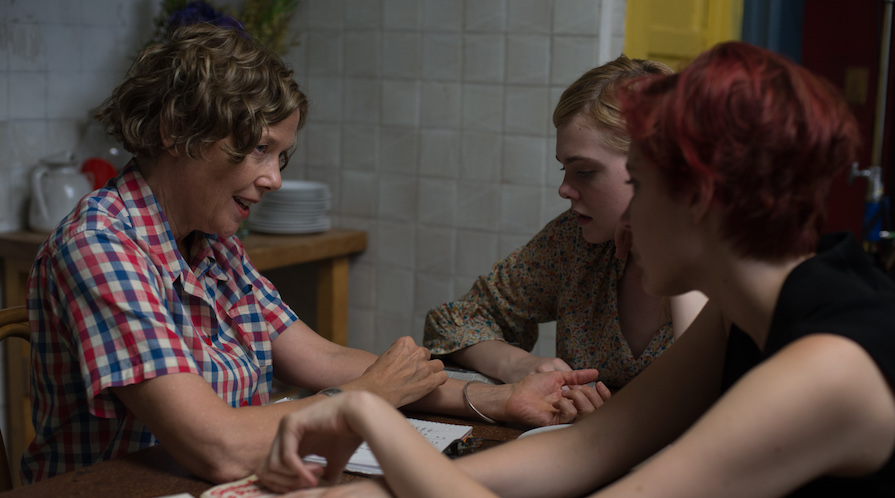‘20th Century Women’ Mike Mills has good taste. Judging from what the filmmaker includes in his latest, the ensemble dramedy “20th Century Women,” we can tell he’s a cool progressive who likes and respects women. He enjoys David Bowie, Talking Heads, Neu! and The Raincoats. He doesn’t see a problem with kids being raised without a dad, and he knows that Planned Parenthood offers a wide array of life-saving services. Though Mills has included all this and more, “20th Century Women” isn’t always (or even often) a joyful film. He’s not showing off, to prove how hip he is. The five central characters, who live, semi-commune-like, in a Santa Barbara home in 1979, operate under the notion that what they love and what they believe are good and right. Truth is, they’re the outsiders; they’re in the minority. The art they love or even practice is strictly cult, not embraced by the mainstream. And they live in one of many parts of California where Goldwater conservatism is the thing. They exist in an era known for its progressive ideals, towards economic and sex and gender norms. But they can feel it all coming to an end — and they don’t even know the Reagan election is but a year away. They are led by Dorothea (Annette Bening), an aging, chain-smoking lefty who has opened her house up to a brood crossing generation and gender lines. She’s assumed a mother hen role, not just to her teen son Jamie (Lucas Jade Zumann), but to a teen girl, Julie (Elle Fanning), not related by blood. There’s also Abbey (Greta Gerwig), a serious photographer who survived cervical cancer (which she discovered during a Planned Parenthood trip — a touch Mills includes as a middle finger to the joint’s willfully and dangerously obtuse detractors). The lone adult male is William (Billy Crudup), a handyman-of-all-trades, trying out the era’s new definition of the sensitive man’s man who likes, respects, even listens to women, but can still put up dry wall. RELATED: Interview: Greta Gerwig on “20th Century Women” and being a California girl Over the two hours, they face no major dilemmas. There are little ones: moments of strain between these five individuals, who each have their own passions, their own things going on. Occasionally they pair off, sometimes romantically — or in the case of Jamie and Julie, almost-romantically. (“You were better before you were horny,” she tells him during one of many nights she platonically sleeps next to him.) Mills keeps things engaging, though. A former music video director and graphic designer, he finds the tension between the chill California vibe and a design-heavy approach, filled with short scenes and montages. He has a gift for avoiding sentimentality or obvious, banal scenes. Even the big showstopper — a group ode to menstruation over dinner — doesn’t go quite full-Eve Ensler. He also knows how to drop devastating truths out of nowhere, the most wrenching being Dorothea confessing to Abbey and Julie about how jealous she is they made friends with her son. “You get to see him in the world as a person,” she says. “I never will.” For those following Mills’ career, “20th Century Women” is a kind of revelation, the ideal he’s been working towards. He’s made great strides; his feature debut, 2005’s “Thumbsucker,” was a suffocating quirk-a-thon, with a high schooler who symbolically still nursed his fattest digit, to say nothing of a score drenched in The Polyphonic Spree.” “Beginners” was a big step-up, but it still tripped up on one of the goofiest meet-cutes in history, plus a subtitled talking dog. All of that is gone by “20th Century Women.” Digging into his own childhood for fodder, Mills commits himself to presenting characters with humor that never turns self-conscious, with seriousness that never becomes mere celebration. They are fascinating people to hang with, correct about everything but still flawed. Its coda nicks the finale of “Six Feet Under,” but honest to god it might do it better.
Director: Mike Mills
Stars: Annette Bening, Greta Gerwig
Rating: R
4 (out of 5) Globes
’20th Century Women’ is a happy-sad look at ’70s progressives

A24
Follow Matt Prigge on Twitter @mattprigge

















